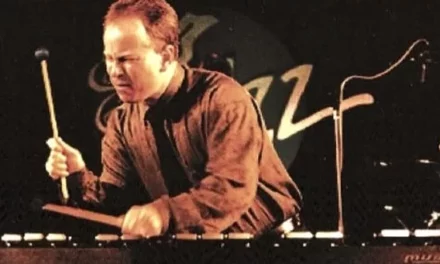Raleigh Ensemble Players’ powerful presentation of A Number by British dramatist Caryl Churchill raises troubling questions as it tackles the thorny issue of the cloning of human beings during an hour-long series of vivid vignettes in which nothing is what it seems. What, at first, appears to be a tense conversation between father and son, both upset because a hospital has taken tissue from the son, without permission, and created a number of clones—how many is unknown—could well be a conversation between creator and creation, in which the human-cloning specialist is only pretending to be the father to one of his “sons.”
In perhaps his strongest performance to date, John Honeycutt is terrific as Salter, the concerned father and/or diabolical scientist; and Ryan Brock imbues each of his three roles, performed in successive vignettes, with a distinctive personality. The hand-wringing Bernard 2, the revenge-minded Bernard 1, and the seemingly well-adjusted Michael are all full-blooded characters—as well as tributes to Brock’s versatility.
REP artistic director C. Glen Matthews not only elicits stellar performances from this talented twosome, but he masterfully stages this quirky script on a brilliant black-and-white set conceived by production designers Thomas Mauney and Miyuki Su to combine the sterility of an institutional setting with an arrangement of cubes that resembles a sawed-off set of test tubes of the sort used in in-vitro fertilization, which the mad scientists of human cloning may already be practicing, unknown to the general public.
A Number asks the questions, What happens to your individuality when you find out that you are not just a twin or a triplet or even a quadruplet, but one of a series of man-made creations—the exact number unknown—living in the same city? Were your “parents” really your biological parents, or surrogate fathers and mothers paid to care for you and provide a semblance of family life? And if you cannot trust your parents to tell you the truth, who can you trust?
What happens when scientists play God? Will the Adams and Eves that human-cloning scientists create live in harmony with their creators and the rest of humanity or become sociopaths?
REP’s provocative production of A Number is sure to be listed on some local critic’s Top 10. Don’t miss it.
Raleigh Ensemble Players presents A Number Thursday-Saturday, Feb. 22-24, at 8 p.m. in Artspace Gallery 2, 201 E. Davie St., Raleigh, North Carolina. $15 ($12 students, seniors, and active-duty military personnel), except pay-what-you-can performance Feb. 15th. 919/832-9607 (TTY: 919/835-0624). Note: Arts Access, Inc. of Raleigh (http://www.artsaccessinc.org/) will audio describe the Feb. 23rd performance, which will also include sign-language interpretation, Braille and large-print programs, and a preshow tactile tour. Raleigh Ensemble Players: http://www.realtheatre.org/.












